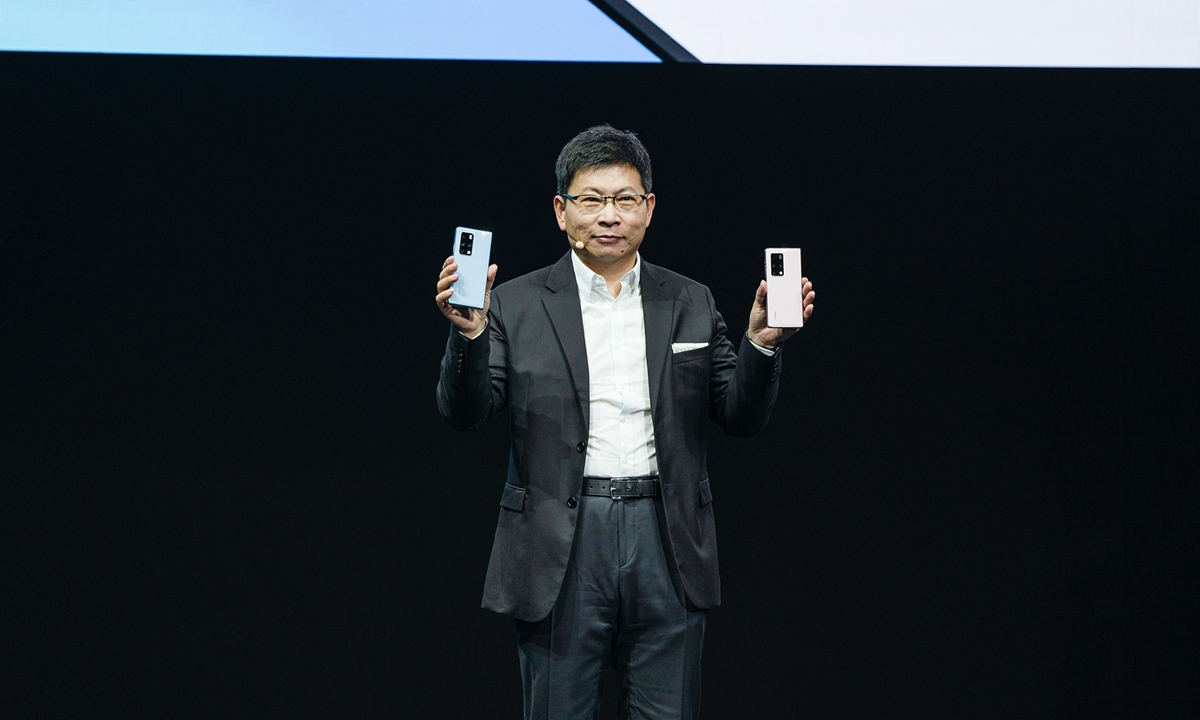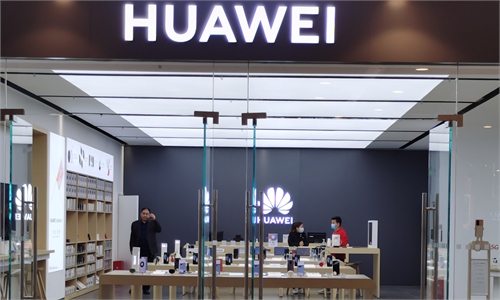
Richard Yu Chengdong holds the newly released Huawei MateX2 series at a launch event on Monday Photo: Courtesy of Huawei
Huawei launched the new foldable MateX2 handset series on Monday, continuing its ambition in the high-end phone segment, following reports that the Chinese technology company is in talks to sell its premium smartphone brands due to an extreme chip shortage.
The phone carries its self-developed Kirin 9000 5G SoC chipset, and prices start from 17,999 yuan ($2,785.23). The phone will go on sale on Thursday.
Foldable phones still have larger market opportunities than traditional ones, and they also offer a higher profit margin, Xiang Ligang, director-general of the Beijing-based Information Consumption Alliance, told the Global Times on Monday, noting that Huawei is "using its limited chip stockpiles in the most-needed place."
"We survived," said Richard Yu Chengdong, CEO of Huawei's consumer business, at the launch event, while admitting that the company's market share has been falling due to the second and third round of US sanctions, which cut it off totally from chip supplies.
Yu also said that starting from April this year, Huawei's flagship phones can be upgraded to its self-developed HarmonyOS in phases, noting that the newly released MateX2 will be the first batch that can test the system.
Nevertheless, despite the new product launch that went on as scheduled, Xiang noted that Huawei may also prepare for the worst-case scenario - which would mean talks on selling or "temporarily selling" its high-end cellphone segment. That is, if the Biden administration follows the same strategy toward Huawei as its predecessor.
A Reuters report said in late January that Huawei is in early-stage talks to sell its premium smartphone brands P and Mate series, citing two people with direct knowledge of the matter.
Xiang cautioned that the sale talks could be "possible" but Huawei may adopt a different approach compared with the previous Honor sale, and it may "find a solution that could allow it to buy back the segment as soon as the situation eases, or it successfully makes its own chips."
All these steps will need time, Xiang said.
However, Huawei refuted the media reports, saying it has no plans to sell its mobile phone business, the firm told the Global Times previously.
Amid a dilemma in the smartphone segment, Huawei has moved into a wider range of sectors over the past year including smart home solutions, pig farming technology and intelligent mining to diversify its revenue sources.
Xiang said that these moves may not offer immediate compensation for revenue lost due to a sharp slowdown in the consumer business. However, "positive impact will be huge and it will gradually emerge this year," the analyst said.


